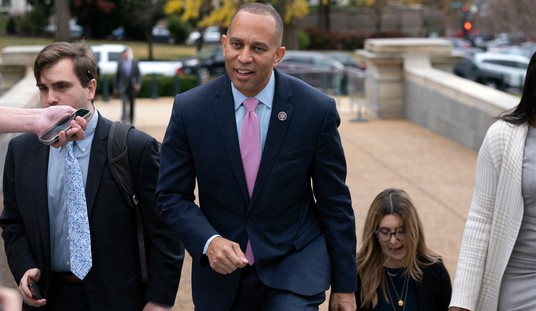On his first day back in office President Donald Trump signed an executive order aiming to end birthright citizenship for children born to illegal immigrants, which set the stage for a fierce legal showdown. In the order, Trump noted that the 14th Amendment “has never been interpreted to extend citizenship universally to everyone born within the United States” and was meant to extend the right of citizenship to slaves and their descendants. This directive has since prompted significant legal challenges across the country, but those challenges are likely to fail.
Many Democrats argue that Trump exceeded his authority with his executive order, positioning it as an unlawful attempt to reinterpret a long-standing constitutional guarantee that anyone born on U.S. soil is an automatic U.S. citizen. However, even within liberal legal circles, there is a growing recognition that Trump may emerge victorious in this contentious battle.
Recommended: This Focus Group’s Findings Spells Disaster for Democrats
Georgetown Law professor Randy E. Barnett and Ilan Wurman, a law professor at the University of Minnesota, underscored this sentiment and asserted in an op-ed at the New York Times that the Supreme Court has never settled the question as it pertains to the children of illegal immigrants.
“The Supreme Court has held, in the 1898 case United States v. Wong Kim Ark, that children born here to permanent residents are citizens,” they explain. “But it has never squarely held that children born to those illegally present are citizens. When the court addresses that question — which it almost certainly must — it should consider the 14th Amendment’s original purpose and the common-law principle of ‘jus soli,’ or birthright citizenship, which informed the original public meaning of the text.”
The pair acknowledge that the purpose of the 14th Amendment at the time of its adoption was to extend citizenship to free slaves after the Civil War.
Clearly, the [illegal immigrant] parents [of children born in the United States] are not enemies in the sense of an invading army, but they did not come in amity. They gave no obedience or allegiance to the country when they entered — one cannot give allegiance and promise to be bound by the laws through an act of defiance of those laws. Such persons can even be summarily removed from the country without judicial procedures of the sort that would protect citizens. If the allegiance-for-protection view informed the original meaning of the text, then they and their children are therefore not under the protection or ‘subject to the jurisdiction’ of the nation in the relevant sense.
“When they finally consider this question, the justices [on the Supreme Court] will find that the case for Mr. Trump’s order is stronger than his critics realize,” they add.
Critics of Trump’s order contend that altering the longstanding interpretation of the 14th Amendment would necessitate a constitutional amendment rather than an executive order. Still, many legal experts anticipate that the Supreme Court will eventually settle Trump’s executive order. Hence, Trump’s chances of winning this legal fight appear increasingly plausible as arguments around allegiance, policy, and constitutional interpretation show that Trump is on solid footing.










